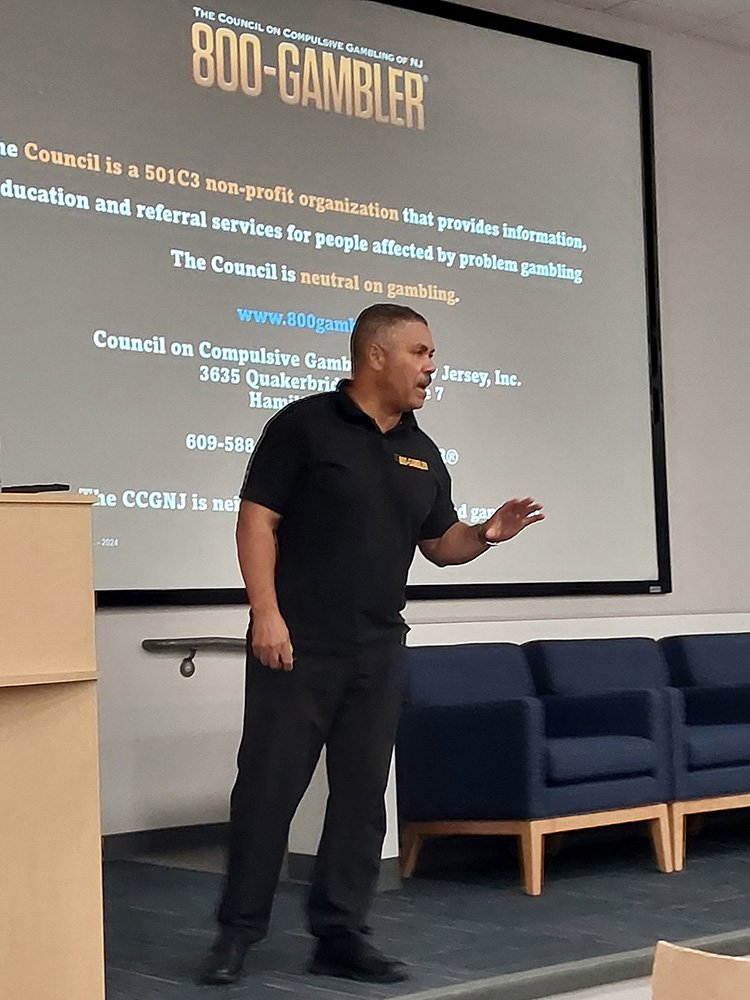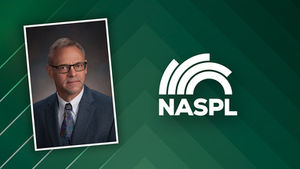How the New Jersey Lottery Maintains Responsible Gaming Excellence
- Insights Online
- Oct 21, 2025
- 6 min read
A recent RG training retreat for employees is just one example of an organization-wide commitment to continuous improvement.
By New Jersey Lottery Staff
Published October 21, 2025

State-run lotteries have been thriving in the United States for more than half a century. During that time, the New Jersey Lottery has stood among the industry leaders not just for its innovative gaming products that allow players to have fun while dreaming big, but also for its commitment to responsible gaming.
The Lottery, a major contributor to public workers’ pensions as a division of the New Jersey Department of Treasury, is at the forefront because its culture of continuous improvement empowers every staff member to carry a responsible gaming mindset that spans research, employee and retailer training, game design, advertising, player education, and ultimately treatment referrals.
ADVERTISEMENT
Due to these efforts, the World Lottery Association’s Responsible Gaming Framework credits the New Jersey Lottery with a Level Four certification, the highest ranking possible. The Garden State is one of just nine U.S. jurisdictions that have achieved this designation. With that certification, the Lottery is also recognized at the top level in the NASPL Responsible Gambling Certification Program.
The New Jersey Lottery develops its responsible gaming goals and initiatives based on the opportunities found through the Lottery’s WLA recertification process, from stakeholder feedback, and from best practices displayed by peer lotteries.
By setting such a high bar, the New Jersey Lottery still must display continuous improvement in upholding responsible play while ensuring a safe and enjoyable experience for all participants.
Culture of Responsible Gaming at the New Jersey Lottery
As part of its continuous improvement efforts, the New Jersey Lottery and its marketing partner, Northstar New Jersey, hosted this summer a retreat for its staff, aimed at training employees on responsible gaming best practices. To accommodate the approximately 200 employees across both organizations, the retreat was held on two separate days in June.
At the top of the training program, leadership from the New Jersey Lottery and Northstar drove home the commitment.
“Responsible gaming is core to what we do, and it is the responsibility of everyone that works for the New Jersey Lottery. We operate with honesty because that builds trust. We operate with transparency because that ensures accountability. We operate responsibly because that prioritizes player welfare. And we support the state pension fund because we’re contributing to the state of New Jersey’s health,” said New Jersey Lottery Executive Director Jim Carey, one of the two longest serving directors in the Lottery’s 55-year history, in his opening remarks.
ADVERTISEMENT
Adam Perlow, Chief Operating Officer of Northstar New Jersey, highlighted how the New Jersey Lottery stays atop responsible gaming initiatives through the following initiatives:
Employee outreach: The Lottery distributes a quarterly responsible gaming eNewsletter to all employees. The newsletter informs employees of responsible gaming activities, initiatives and accomplishments.
Retailer outreach: As a condition for receiving and maintaining their licenses, all New Jersey Lottery retailers must fulfill their responsible gaming requirements, which include watching the Lottery Retailer Responsible Gaming Training Video and acknowledging receipt and review of the Retailer Code of Conduct.
Player Education: The Lottery educates players that it offers its products as a form of entertainment. In doing so, the Lottery provides players with responsible gaming tips and information. It also connects people with the New Jersey Council on Compulsive Gambling, which provides contact information for treatment providers.
Advertising and marketing communications: The Lottery ensures responsible gaming messaging is included in all advertising and marketing communications. These communications are age-appropriate and socially responsible. Additionally, the Lottery has four responsible gaming campaigns that are published quarterly:
o Problem Gambling Awareness Month in March
o Not 18 Yet? No Bet in September
o Gift Responsibly in November-December
o Pool Rules in summer
Game design: All Lottery games must go through two analyses that help determine the risk of each game is minimized with regard to vulnerable populations and for the potential appeal of such games to underage persons. These risk analyses are:
o A third-party software that evaluates the structural and situational characteristics of each game using a rating scale for each game’s key elements. All Lottery games on the market have scored low risk.
o A responsible gaming social responsibility assessment. The visual appeal and messaging of all games are evaluated to ensure compliance with the Lottery’s Game Design Code of Conduct. The Social Responsibility Assessment reviews each proposed game’s aesthetics, sounds, imagery and text to minimize the risk of appealing to vulnerable populations and underage persons.
ADVERTISEMENT
How Lived Experiences Shape Employee Education
It is crucial to put context to such efforts. The New Jersey Lottery’s training program for employees featured speakers who were able to share their lived experiences and engage with the audience, including Joe Kane, a representative of the New Jersey Council on Compulsive gambling, and Rob Minnick, a social media influencer who focuses on recovery advocacy.
“We're neither for nor against gambling. We get people into therapy. We get people into support groups. Responsible gaming is something very near and dear to me. I am a compulsive gambler myself, so I may tell a little bit about my story. I’m also an alcoholic. I also suffer from obsessive compulsive disorder; otherwise, I'm good,” Kane said, displaying a touch of humor to ease the audience into his heart-felt messaging. “These are the cards I got dealt and I have to deal with them. And it’s a juggling act.”
Part of the juggling from Kane’s perspective is to help people his organization interacts with get their lives back on track. “We are getting calls about people losing their lives, losing their houses, their marriages; just losing everything. It’s up to us to get these people some help. We provide information, education and referral services for people affected by problem gambling.”
Rob Minnick, a 26-year-old recovery advocate, captivated the audience with his story of struggling with a gambling addiction for six years. He shared his journey from being an enthusiastic 18-year-old daily fantasy sports fan to a young man entangled in gambling, which affected his mental health and relationships. His story underscored the universal nature of gambling addiction, affecting individuals across all demographics.
ADVERTISEMENT
“Gambling felt like this exciting thing where everything else I was doing – going to school, playing sports, being in clubs – was just to get into a college and then get a job. It felt very formulaic, right? Whereas the gambling was new. It was exciting, and it was my choice to do this. I loved to do it. But it led me to years of addiction where I considered it to be something I could get better at. The more I knew, the more I tricked myself into thinking that.”
As part of his recovery, Minnick established a social media presence with the goal of helping others.
“For the first time in six years, I feel like I’ve helped someone. I have posted every single day, at least one time a day on TikTok, Instagram, YouTube, and Facebook. Since then, at one point it was six or seven times a day. Knowing what I know now, knowing that what I was doing was in essence delusional. But it wasn’t even logic that was fueling it, it was an addiction. I didn’t know it could be an addiction for the first five, six years of what I was doing. And so I don’t want to see people going down that same path.”
The Road Forward
As the New Jersey Lottery continues to lead the industry in responsible gaming efforts, the insights and experiences shared at its internal retreat serve as a beacon of hope and a call to action for all involved.
The commitment to continuous improvement, demonstrated by the Lottery’s WLA Level 4 certification and its responsible gaming program, ensures that the industry is not only aware of the risks associated with problem gaming but also actively works to mitigate them.
Looking ahead, the integration of advanced technologies and ongoing stakeholder engagement aims to enhance the responsible gaming landscape, making it easier for individuals to enjoy gambling as a form of entertainment without falling into the traps of addiction.
The stories of recovery and the innovative approaches to prevention and treatment underscore a promising future where gambling can co-exist harmoniously with responsible practices, ensuring that the joy of the game does not come at the expense of individuals’ well-being.




























